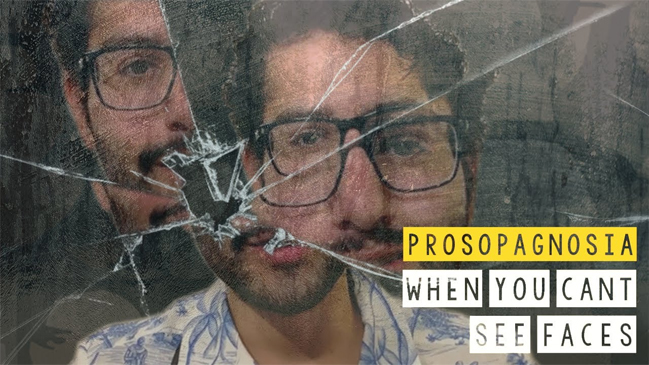Shenaz Treasurywala Diagnosed With Prosopagnosia, What Ayurveda Says About It?
Abstract
The word Prosopagnosia indicates facial blindness. It is a Greek originated word in which Prospon means face (in greek) and agnosia means ignorance, so in modern Latin, it is stated as prosopagnosia. In simple lines, prosopagnosia is the inability to recognize faces. Face blindness sometimes affects individuals from birth and stays their whole life sometimes. Prosopagnosia can have an adverse impact on the day to day life of an individual. In some people suffering from Prosopagnosia, this problem can be congenital without any brain damage or vice versa. Here in this article, we will discuss Prosopagnosia with special reference to Shehnaz Treasurywala recently admitting that she is suffering from this problem which we will discuss in this article
Introduction
Prosopagnosia or face blindness is a brain disorder. The region known as the core of brain processing is formed by the fusiform gyrus, inferior lateral occipital cortex, and temporal sulcus. This system acts as a core for face processing. The basic feature is an inability to differentiate or recognize the faces. It can be acquired either through a brain injury or can be associated with autism-like developmental disorders. This condition affects the patient’s condition and creates trouble in day-to-day life. According to some studies, it is evident that individuals with impairment of ADHD may feel facial perception sometimes but that condition is slightly different. Various studies suggest that approximately 2 percent of persons have a sign of the developmental type of prosopagnosia. Previously many famous people have been diagnosed with this problem before Shehnaz Treasurywala including Jane Goodall (a famous anthropologist), Stephan fry, Princess of Sweden Victoria, and famous Hollywood actor Brad Pitt. Readers of this article may not be aware of the complexity of this problem but the person suffering from this problem may feel severe social isolation, and an inability to recognize family members, friends, and even themselves. Modern methods of treatment don’t have any cure for this problem whereas in the Ayurveda lifestyle a person can be made better with classical herbs or a combination of herbs which we will discuss in this article.

Causes
As per studies, the condition of Prosopagnosia may be due to damage or impairment in the fusiform gyrus. Thought to be the result of abnormalities, damage, or impairment in the right fusiform gyrus, a fold in the brain that appears to coordinate the neural systems that control facial perception and memory. Prosopagnosia can result from stroke, traumatic brain injury, or certain neurodegenerative diseases. An injury to the fusiform gyrus may lead to the acquired type of Prosopagnosia.
Symptoms
Face blindness or poor face recognition is one of the basic clinical features of Prosopagnosia. Following are some of the associated symptoms of this problem which may or may not be present in patients with Prosopagnosia.
- Difficulty in recognition of a face.
- The unfamiliar response towards past People with prosopagnosia often have.
- Difficulty telling unknown faces apart from one another
- Judgment of gender by looking at the face
- Try to identify facial expressions or emotions.
- Recognize by remembering the name.
Types
Acquired and developmental two types of Prosopagnosia are there. Brief descriptions of both types are explained briefly below
1. Developmental prosopagnosia
This type of Prosopagnosia can be due to genetic causes or due to family history. This condition arises when a person has prosopagnosia without having brain damage or a brain stroke. Most people with developmental prosopagnosia simply fail to develop the ability to recognize faces. Someone born with the condition may not realize they have a problem. Many people with this type of prosopagnosia condition have reported at least 1 first-degree relative, such as a parent or sibling (brother or sister), who also has problems recognizing faces.
2. Acquired prosopagnosia
A large number of documented cases are there in this type of Prosopagnosia. It can be due to any kind of brain damage or damage to the face recognition core of the brain as we have discussed in the introduction part of this article. The injury can be due to head trauma or stroke.
Diagnosis of Prosopagnosia
In an MRI investigation of patients suffering from prosopagnosia, a functional activation in the fusiform gyrus can be seen. Regions of the fusiform gyrus, inferior lateral occipital cortex, and temporal sulcus are involved in face processing. These regions usually form a basic system or core for face processing. It is not justified to relate Prosopagnosia with memory problems, loss of vision, or learning disabilities. With more voxels (3D analog of a pixel) in posterior areas instead of their control subjects, such activation is not sufficient for the recognition of the face. Generally, when we look at the face, the temporal lobe region is activated and a person can recognize the face. Voxel-based morphometry is one of the significant tests to investigate focal differences in the brain. Benton Facial Recognition Test (BFRT) and Warrington Recognition Memory of Faces (RMF) are also used to check the condition of Prosopagnosia.
Impact on daily life
A person suffering from Prosopagnosia may feel social anxiety disorder. Navigation difficulties are also common in patients with Prosopagnosia. Patients sometimes cannot recognize the cars or their favorite things, making them more frustrated. A lot of problems are associated with Prosopagnosia, Some of them are briefly explained below
- Socialization – Socialization can be the toughest task for patients suffering from prosopagnosia. Kids may feel problems with their colleagues. Adults may face problems with social skills.
- Watching the screen – People suffering from Prosopagnosia may face problems watching films and TV shows. It is because of their inability to recognize the character.
- Career disappointments– Poor social behavior and inability to face recognition may cause unemployment and poor career achievements.
- Low self-esteem– Poor confidence and low self-esteem is also the biggest trouble for patients with Prosopagnosia. Patients sometimes feel shy or unable to admit the problem.
- Mental health issues – Due to poor performance, less or no socialization may lead to anxiety, depression, or low confidence. Such people are at a high risk of any associated mental issues.
Ayurvedic Aspect
In Ayurveda, Prosopagnosia can be correlated with Manovaha strotodsuhti. Manovaha strotas are very well explained in the ayurvedic texts. The deprived health of Manovaha strotas may lead to various neurological disorders. Vata dosha is mainly aggravated in Manovaha strotodushi and pitta as well Kapha is also associated. It is mentioned in Charak Samhita that the use of Jivaniya and Medhya groups of herbs can be beneficial in such a problem. The Jivaniya kshaya (life-promoting herb group) is able to rejuvenate the cells at DNA levels and the medhya group (brain tonics) may promote the brain capacity.
Herbal formulations of Planet Ayurveda
Planet Ayurveda is a GMP-certified hub for the manufacturing of Herbal ayurvedic formulations. The products are authentic, herbal, and based on classical ayurvedic texts with result-oriented properties. Planet ayurveda has lots of products for Prosopagnosia some of them are listed below:-
1. Memory Support Formula
The Memory Support Formula contains Brahmi (Bacopa monnieri), Vacha (Acorus calamus), Shankhpushpi (Convolvulus pluricaulis), and Mulethi (Licorice). This herbal formulation of Planet Ayurveda is a well-known memory booster and helps to pacify the stress as well as anxiety associated with Prosopagnosia. The herbs present in the memory support formula also act together to induce natural sleep without any side effects. The Brahmi and Vacha are also evident to heal any kind of brain injury due to stroke or trauma. Mulethi is also designated as one of the Medhya rasayan. Shlok ref .. Charak chikitsa sthan chapter rasyanadhya shlok 31. Medhya rasayan is a group of those herbs having a tendency and potency to promote healthy life, pacify a variety of diseases, and enhance the body’s strength and memory as well.
Dosage– 2 cap twice daily with plain water after meals.
2. Saraswata Ghrit
Add shalok Reference Ashtangharidya Uttarsthanam (Balopcharniya adhyay). This is a classical herbal formulation mentioned in the ayurvedic classical text as per the reference mentioned. The chief ingredients of this formulation are goat milk, harad (Terminalia chebula), sonth (Gingiber officinale), Marich (Piper nigrum), pipal (Ficus religiosa), patha (Cyclea peltata), sahijan ki chhal (Moringa oleifera) and sendha namak (Himalayan pink salt). All these should be mixed in cow ghee and should be cooked properly. It is helpful to enhance the Vakshakti (communication skills), Medha (intelligence), Smriti (memory), and agnivardhak (promote digestive fire).
Dosage– 1 tsp twice daily with warm water after meals.
3. Neurogenie Cap
Neurogenie capsule of Planet Ayurveda is a herbal formulation loaded with Brahmi (Bacopa monnieri) and Ashwagandha (Withania somnifera). Due to the presence of such potent ingredients, this combination helps to nourish the nerves and enhance muscular strength. Neurogenie cap help to pacify the Vata dosha and improve memory. It helps to pacify the stress and anxiety associated with Prosopagnosia. The Neurogenie cap of Planet Ayurveda is the best, most authentic, and result-oriented formulation. In the classical ayurvedic text Raj Nighantu, Brahmi is designated as Vata and Kapha dosha nashak due to its tikta (bitter) and ushna (hot) potency. Shloka reference … raj nighantu mentioned in PV Sharma.
Dosage– 2 cap twice daily with plain water after meals.
Conclusion
In this article, we have discussed Prosopagnosia, a problem associated with face blindness. When recognizing people’s faces all faces look the same means you cannot recognize people’s faces. Face blindness often affects people from birth and is usually a problem a person has for most or all of their life. It can have a severe impact on everyday life. Many people with prosopagnosia are not able to recognize family members, partners, or friends. They may cope by using alternative strategies to recognize people, such as remembering the way they walk or their hairstyle, voice, or clothing. In one of the social media acceptance of Shehnaj Treasurywala she wrote,” It takes a minute to recognize or register a close friend, she said that she feels ashamed not to recognize people due to this blindness “. To pacify the symptoms and rejuvenate the brain cells ayurvedic herbs or formulations should be used and side effects from synthetic molecules should be prevented.



